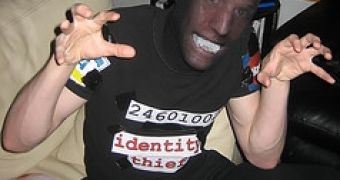A group of Venezuelan students were recently arrested by local police for various theft charges. After further investigation, authorities proved that they were using many social networking sites, especially Facebook, to monitor their victims' activity and rob their houses while out of town.
Global Post reports that the group was formed by three persons, a couple and a third man, a local student and close friend to many of his victims. The group used his Facebook friends list to acquire information about the man's college friends.
They followed updates, inspected the financial status and analyzed pictures from the victim's profile to gain precious information about their location, house arrangement and time table. After gaining all the necessary data, the man, assisted by the couple, robbed his friend's house when the victim was away (information also acquired through various social network updates).
"They observe the families’ movements, they study the residencies — the comings and goings, the security measures," said Wilmer Flores Trosel, director of the CICPC, a national investigation agency in Venezuela.
Authorities are also warning that sites like Hi5, Facebook, Sonico or Twitter can and have been used by South American kidnappers in the past. It is world-recognized that Venezuela, and many other South American countries have a real potential danger and criminal habit for kidnapping offenders.
“There's a certain amount of intelligence work involved in kidnapping that Facebook makes easier,” said Roberto Briceno Leon, Director of the National Venezuelan Observatory of Violence. “Before, what did kidnappers do? They could spend months checking accounts, studying a person's daily movements in order to be able to plan the kidnapping. That implies an investment. Now, Facebook makes that easier.”
Not only used in criminal behavior, micro-blogging platforms like (and especially) Twitter have been employed by many anarchists and social protesters all around South American countries.
The trend started after disturbances in Moldova this spring due to Parliament elections. Protesters used Twitter updates at first (before access to Twitter was cut off by ISPs) to rally up and stand together against Moldavian officials in the spring of 2009. The same happened in many cities across Venezuela. Ironically, the police also used Facebook profile pics to identify protesters caught on CCTV camera footage.

 14 DAY TRIAL //
14 DAY TRIAL //